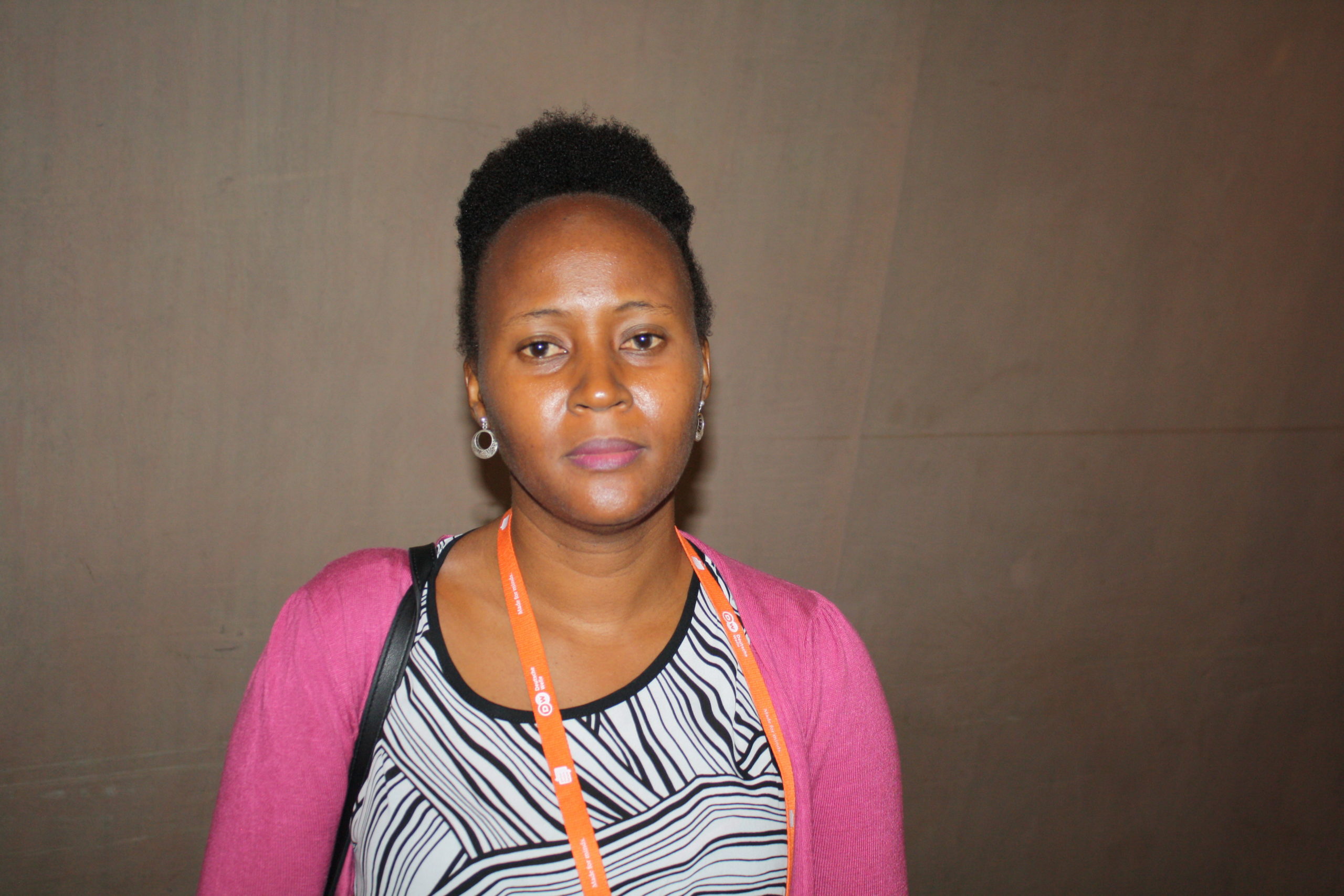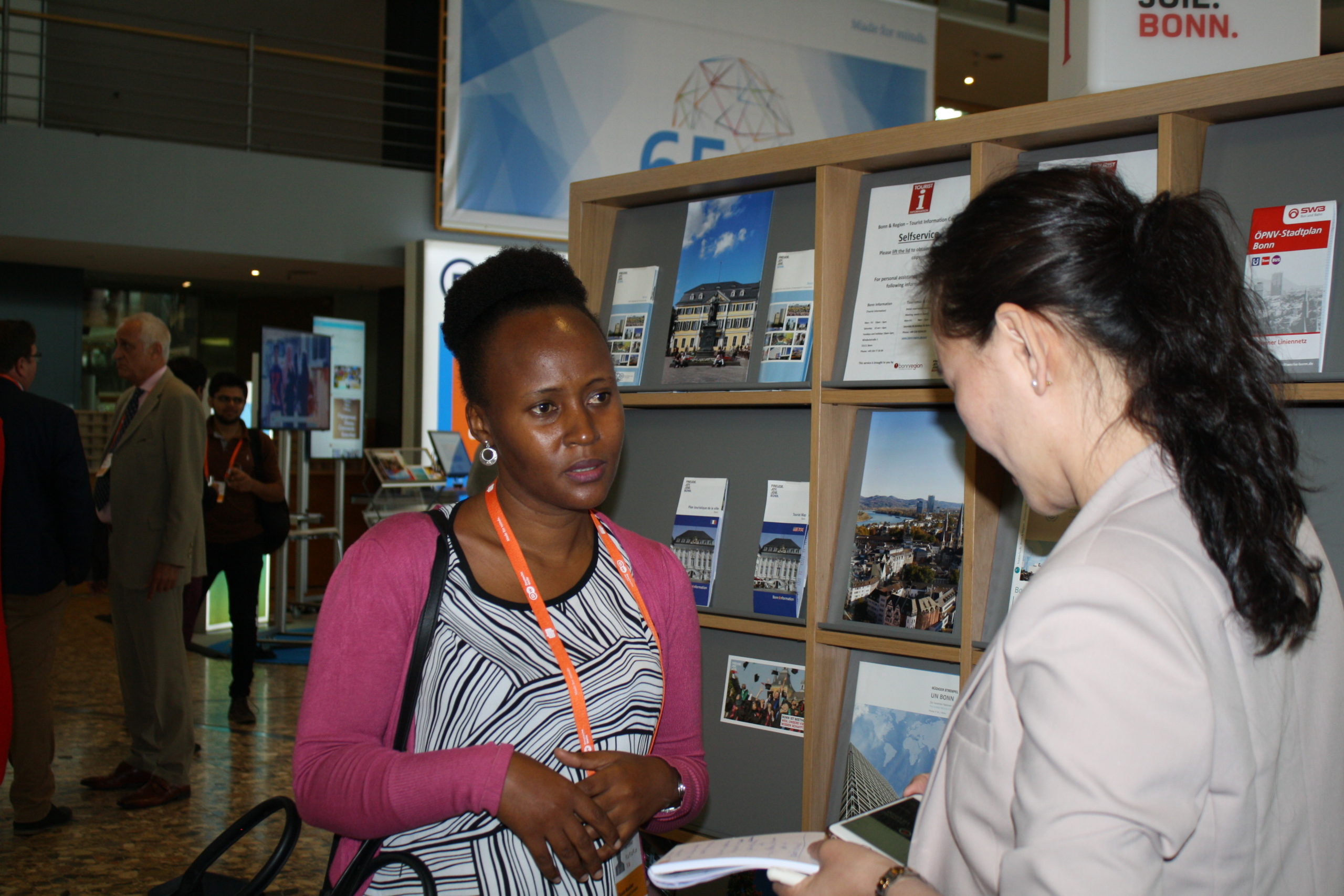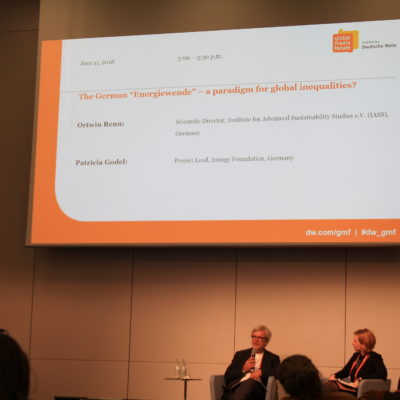By Caroline Paul Kanjookaran
Tanzania Media Foundation (TMF) (formerly, ‘Tanzania Media Fund’) aims to foster vibrant media sector in the country by enabling investigative and public interest journalism and facilitating critical reflection and learning. Orange talks to Fausta Musokwa, Interim Executive Director of TMF, on how they support quality journalism and encourage development in the media landscape.
Q: Could you tell us about TMF and its activities?
A: We work in media development; our aim is to build the capacity of media outlets in line with our vision of a strong and independent media sector promoting accountability. We do this specifically through grants and learning; we give grants both to journalists and media.
For this purpose, we have adopted a unique, multilayered approach. First, we are the only local organization that gives grants to media outlets and journalists in Tanzania to promote accountability. The approach is unique because of the grants-and-learning chain feature; an institution or individual goes from one stage to another in the grants-and-learning chain. It is our desire to groom individual grantees into mentors and our institutional grantees to grow and ultimately give money, perhaps back to us, to promote public interest journalism. So, our grant-giving approach has a give-back feature, though this is not yet operational.
Q: Who constitutes this foundation?
A: Within organization, we have people with financial capabilities as this is basically a foundation that provides grants and financial assistance. Most of us have worked in media or civil society. We also have a network of trainers or pool of mentors who are veteran journalists, but also lawyers and experts from other areas. This is because we align our content with pressing issues such as importing and extractive industries as they constitute a major chunk of national economy alongside agriculture and tourism.
Q: What are the different types of grants you provide?
A: We provide five different grants, and we have a chain, or step-up, approach toward these grants. There is an entry level ‘Rural Dispatch Grant’, whose focus is on rural reporting to address the issue of urban centrism in the media. There’s also learning attached to this package, which is a sort of mentorship where we teach our grantee journalists how to tell an accountability story in the local context. We then have them interact with different actors such as civil society, veteran journalists, etc. They are matched with a mentor, who provides guidance and other support.
Q. What are the backgrounds of journalists who qualify for grants?
A: In Tanzania, you come across two different types of journalists; the first one is people working in the media sector without formal qualifications, and the second one includes those with qualifications. We have eligibility criteria for the selection process; journalists should already have a fair idea of the stories they want to work on and platforms in which they can publish or broadcast their works. However, we also have an option of connecting journalists with our media partners since there is a dearth of content in Tanzanian media.
Q: How do you tackle inequality through your existing system?
A: We do it by focusing on the lack of women in a certain type of reporting in Tanzania. Typically, we promote public interest and investigative journalism, and the latter is generally considered a male domain. Our first step toward tackling inequality is by demystifying what it means to be an investigative journalist. Contrary to popular beliefs, it is not necessarily hiding in a corner or working with hidden cameras. Right now, for us, it is data journalism, and it is important to have people who can disseminate data and draw meaningful conclusions out of it. It is an approach and a methodology to be able to follow logically through the story, and local journalists sometimes cannot do that. In that sense, we are trying to bring more women into this kind of journalism.
When we provide grants, we also focus on media outlets outside Dar es Salaam (the largest city – Orange), especially rural areas. We look at places which lack strong media and try to fill this gap. We specifically promote rural reporting, and that is our major strategy to address inequality.
Q. Why is there a major focus on rural reporting?
A. Last year, we carried out a content analysis, that showed only 37% journalistic pieces in the media were about rural issues – in a country, where rural population accounts for over 80% of the people. We think rural residents should have more coverage in the media, and we are trying to address this.
Stronger media outlets, in terms of capacity and facilities, are the ones in Dar es Salaam; and we try to reduce the amount of journalists coming from big cities. This means that other grantees come from other parts of the country and could even be rural-based. Also, even with the journalists from the capital, we make sure their stories are not revolving around the city itself unless they are covering a marginalized group. Our focus is on the underrepresented and the underreported.
Q. What are some examples of the work that grant cohorts have covered in the past?
A: Our cohorts have done a lot of work around the extractives industry for the reasons mentioned above. This is in addition to traditional stories about health, agriculture etc., because we also try to align our content with the public interest. For example, what do people think is missing in the media or what kind of stories are important for them? In our study, agriculture topped the list, followed by health and education and therefore, we also focus on these types of stories.
Q. Have you uncovered any big issues or broken any big news stories?
A: One of the biggest stories to date is the IPTL (Independent Power Tanzania Limited) saga which was a rare collaborative effort, where media and parliament helped raise public outcry. TMF funded one of the media outlets that broke the story and built up the capacity of its investigative team. It was unique in terms of the consistent focus of the paper and was a major story combatting corruption in Tanzania. Journalists wrote about 300 billion Tanzanian shillings (around 112 million Euros) illegally moved from IPTL and Tanzania Electric Supply Company join account to the Bank of Tanzania. According to the investigations, part of the money was distributed among politicians, government officials, judges, and even some religious leaders.
We have also funded the institutional development and sustainability of Jamii Forums, a platform for user-generated content which has had a unique and the most significant contribution to whistle-blowing in Tanzania; and thus, we influence the culture of investigative journalism in Tanzania. There are several examples of investigations which were carried out mainly because of funding from TMF.
Every year, we document 10 stories of change, often from rural areas. Usually, the issues covered are related to service delivery in sectors such as health, education, water, and agriculture which affect the poorest and most marginalized Tanzanians. Some stories that prompted change at the local level include a 2016 investigation into how the activities of a mining company in Songea district led to the contamination of water sources for villagers. There were also stories on illegal oil trade in Zanzibar and the way local diamond barons use young people to steal in the areas owned by mining companies, often becoming permanently disabled or killed because they get shot for trespassing.
Q. What is the role of the government?
A: We consider the government an important strategic partner; however, we do not receive funds from it. In the past, we have also tried to align ourselves with its work, but of course, from a media perspective. For example, the government in 2015 and even now, considers industrialization a big agenda. We had a cohort of fellows who reported industrialization so as to give a balanced view of things by giving independent views and opinions.
Q: Do you do anything besides rural reporting?
A: TMF supports the institutional development of media outlets in Tanzania towards developing a strong media sector. This means we work with media outlets not just to produce content but also in the area of business development. We aim to enhance diversity of voices and perspectives in the public sphere and promote public interest for investigative reporting. We are specifically interested in gender and work to enhance the capacities of women in Tanzanian media.
Q: What is your source of funding and what is the interest of your donors in doing this work?
A: TMF is currently funded mainly by the Irish Embassy and the Embassy of Switzerland in Tanzania, but we are also working with the European Journalism Centre, the European Union, and the Embassy of Netherlands through smaller grants. Their interest in funding TMF’s work is that a strong media sector is a critical part of good governance, and most of our donors are interested in good governance.






